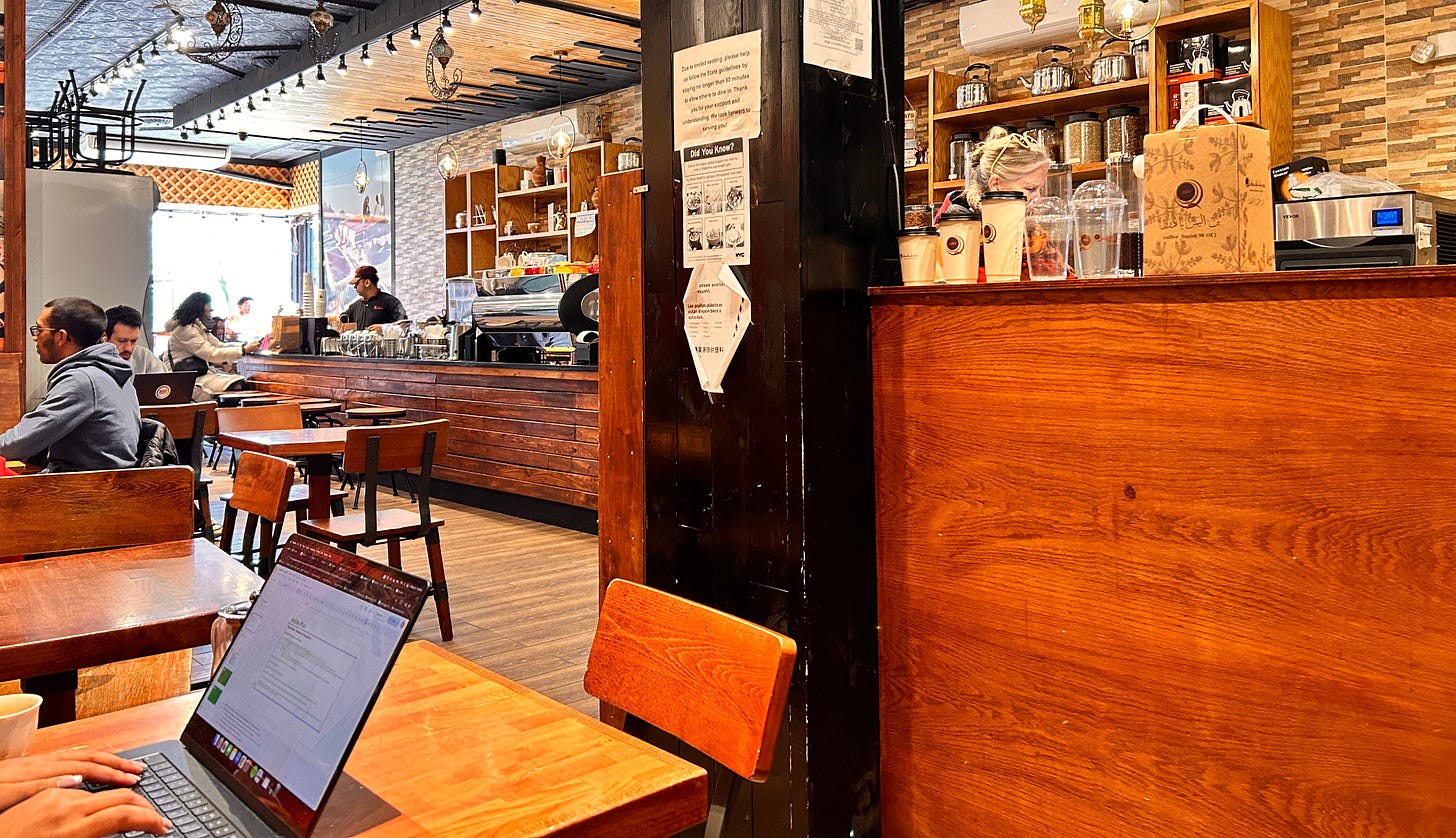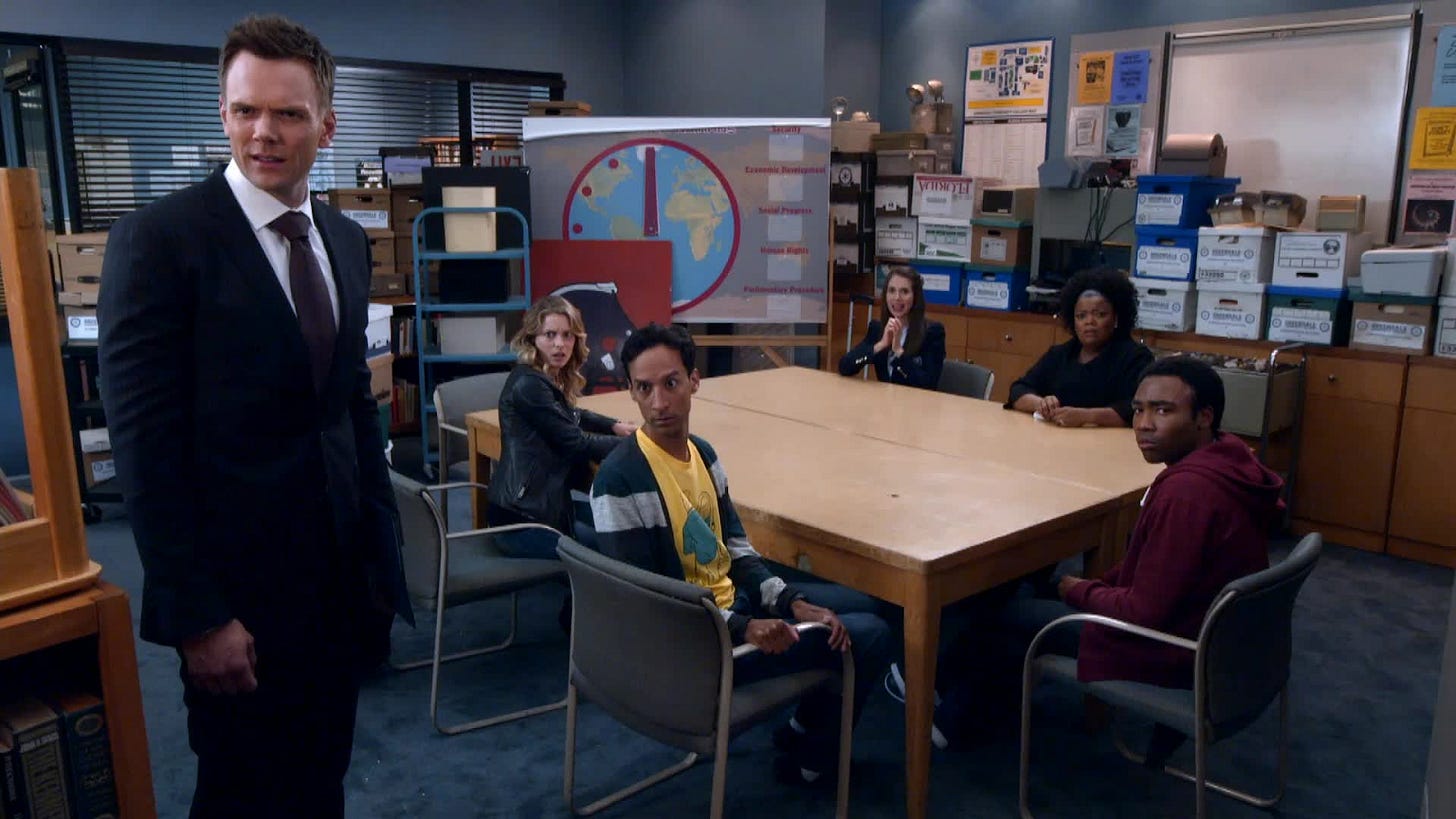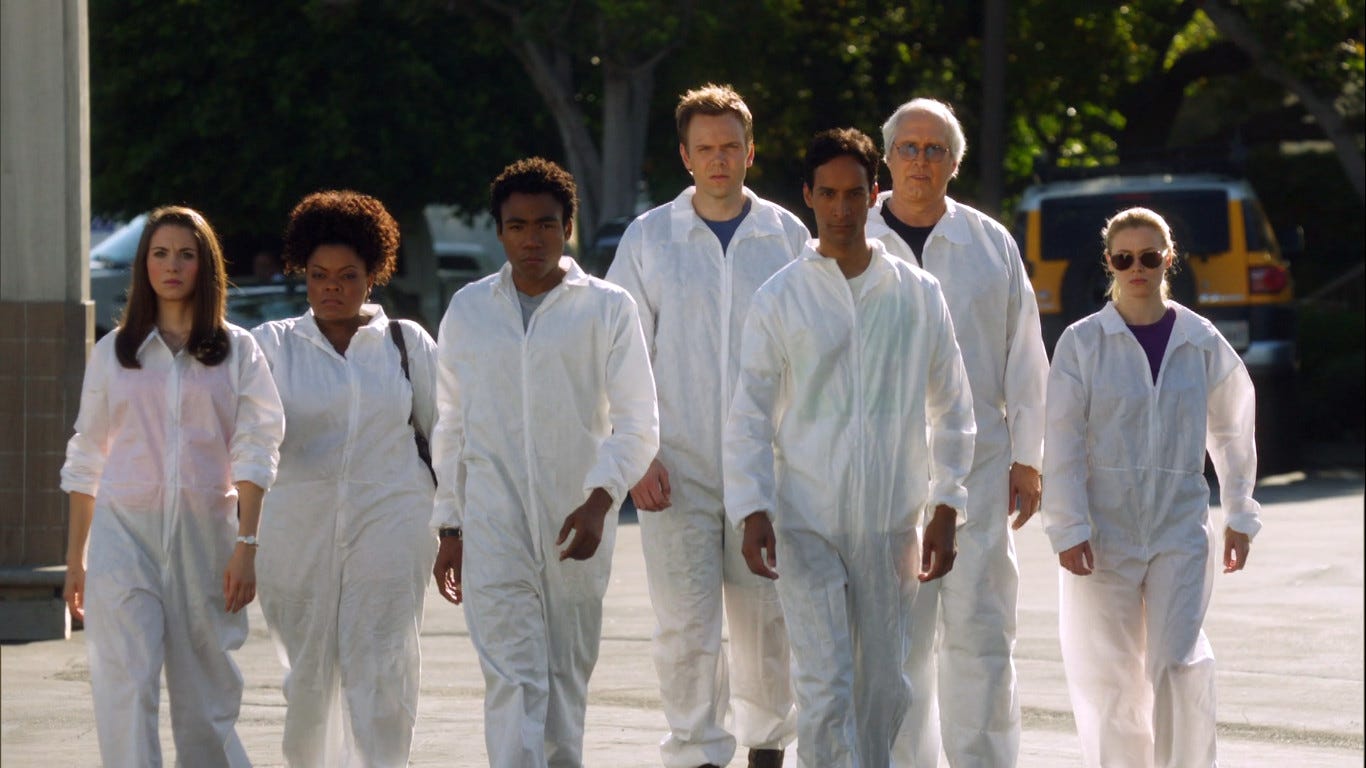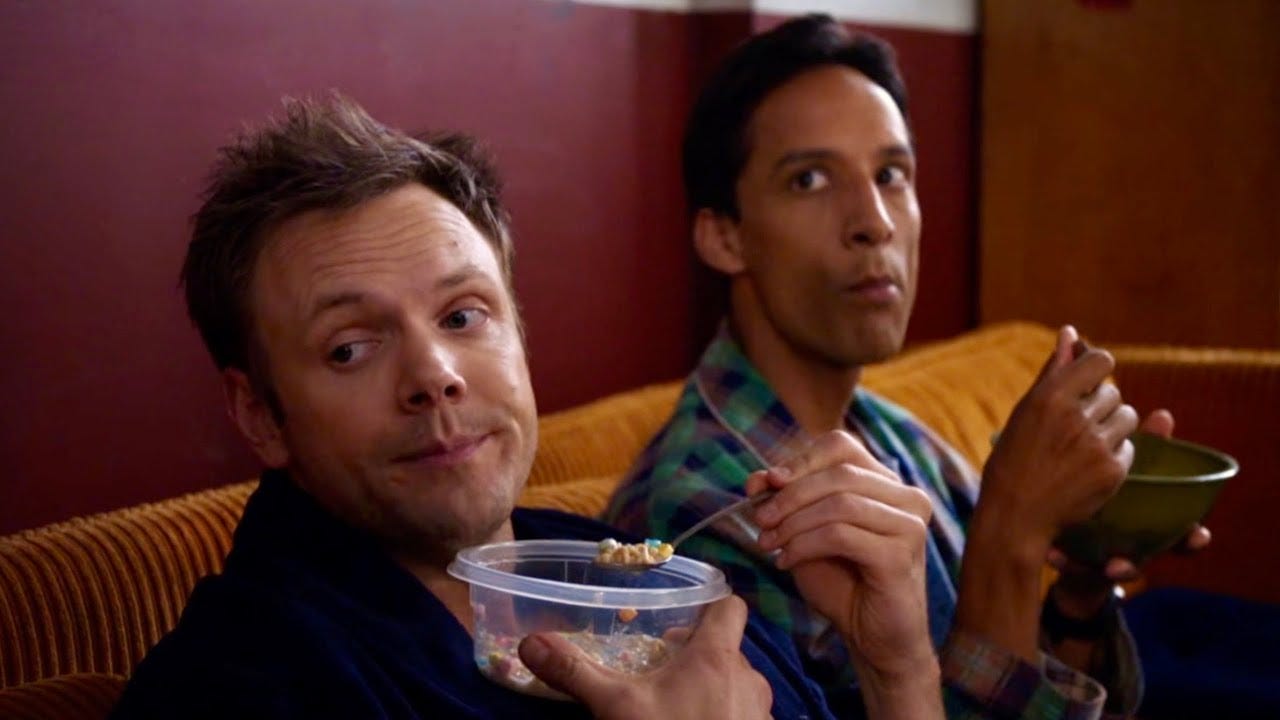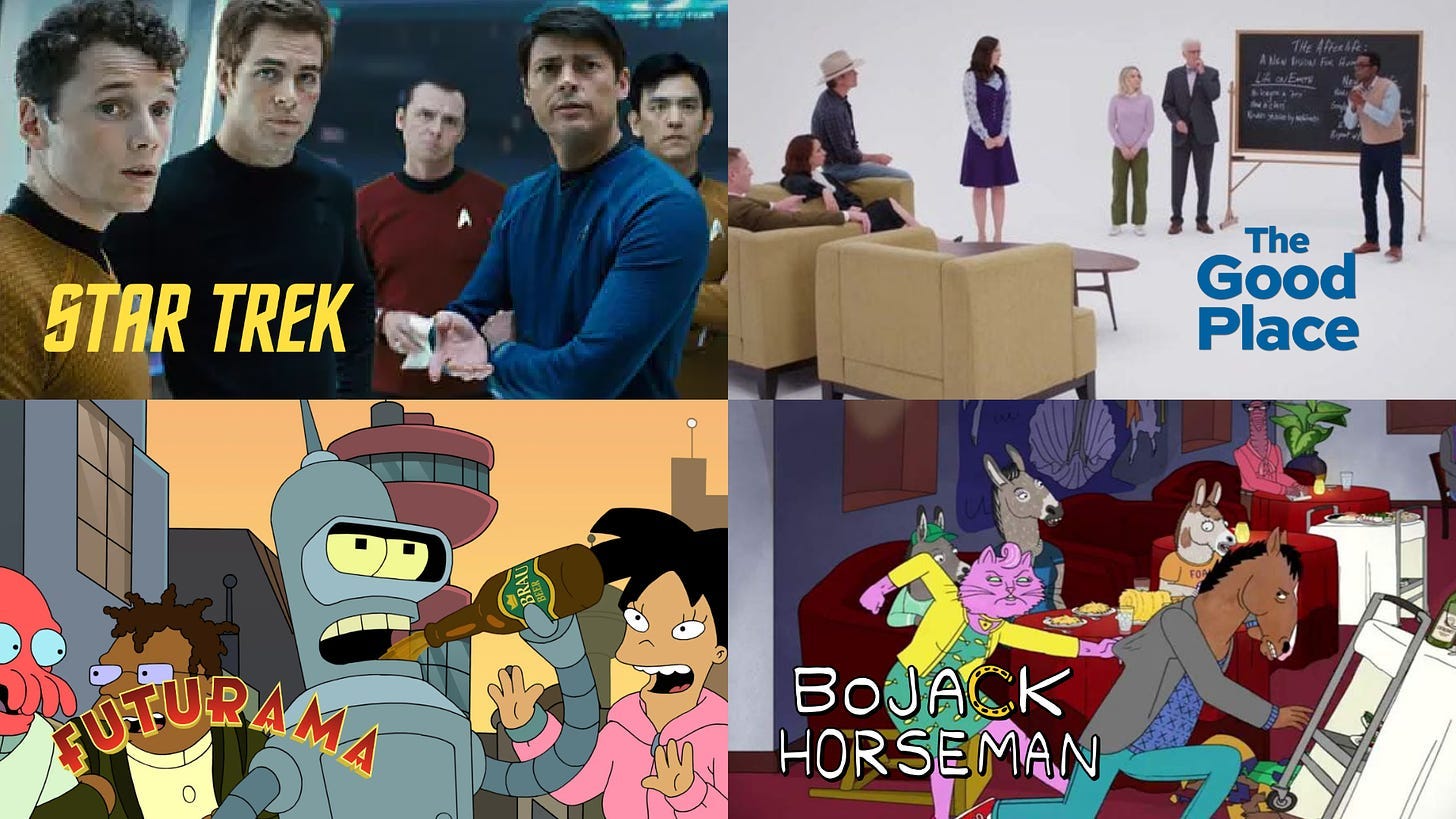Repilot: The Collapse of Meaning … and getting it back
Losing (and then re-gaining) the meaning of life
TL:DR Jamie Wheal and other great thinkers propose that we are currently witnessing the societal collapse of meaning. In this post, I explore what may be driving a modern day sense of meaninglessness and how new ideas about religion, work, family, and our public institutions should give us hope for the future.
April 2nd, 2024: My first month in New York City has been full of twists and turns. The first two weeks were a roller coaster where a retreat in the Catskills, new classes, a work conference, dinners with old friends, and events of new communities had me so spent I got sick and had to spend two days just sleeping. Since then, I’ve learned to temper my expectations, regain the feeling of being time rich by doing less, and to do things just for fun without expecting to get anything else out of it. I thought that after all my travels and experience starting over in a new place would be easy, but this definitely has not been the case. The faster I go, the more I feel like I’m falling behind. But there is an energizing feeling of possibility here that is hard to shake. I’m learning to appreciate both that feeling of wonder from having so many possibilities around and that feeling of discomfort from keeping my calendar as empty as possible.
Repilot: The Collapse of Meaning … and getting it back
When Dan Harmon returned to the show Community to create Season 5, he completely wrote off the events that occurred in the show in his absence as events from the ‘Gas Leak Year’. In Season 5, Episode 1 called Repilot, we learn that the lives of our characters coming out of Season 4 didn’t really pan out the way they had hoped: Jeffrey’s law firm had failed, Britta became a bartender instead of a psychologist, Abed became a software engineer instead of a filmmaker, Shirley’s husband left her again, and Annie ended up becoming our second favorite pharmaceutical salesmen. By the end of the episode, all the characters decided to sweep their unfortunate behind the scenes past lives into the ‘Gas Leak Year’, re-enroll in Greendale Community College and essentially start over as if Season 4 never happened.
Life after the pandemic has kind of had a similar RePilot feeling to it. It’s as if, after an unprecedented few years of fear, manic, and hysteria, we are trying to continue life as usual as if the pandemic never happened. Things are returning to normal as if it was all just a ‘Gas Leak Year’. Now, we are back outside, traveling more than ever before, and many are back to the office as if they never left. I, as most of us, am so happy to be leaving that time behind. At the same time, however, things aren’t really the same as before. We all collectively share this difficult experience which will forever be a part of us and that will color how we see things going forward.
The Collapse of Meaning
I feel that we’ve all had this sense that we’ve moved past dangerous waters, but that something is still missing, perhaps something that’s been missing all along. Jamie Wheal, author of the book Recapture the Rapture, argues that what’s been slipping from us is our very sense of meaning and purpose:
Slowly over the past century, and now suddenly, all at once, we’re suffering a collapse in Meaning. We used to find faith and comfort in organized religion, but fewer people than ever subscribe to those beliefs anymore. For the past few hundred years, we’ve been trying a different experiment—one based not on salvation but inclusion. That was the promise of global liberalism—the idea that markets, democracy, and civil rights would bring us into a world where everyone, not just the elect, were entitled to a fair shot at ‘the good life’. Except that hasn’t worked out too well either. Unprecedented economic disparity, global crises, and environmental degradation have revealed that many of those promises were hollow.
What I found so interesting about reading Wheal’s work is that I already had an intuitive idea of many of the trends he documents: that we are less religious (Pew Research), have lost faith in our governments (Gallup), and are becoming skeptical that hard work will be our salvation (WSJ). Somehow, however, hearing about how all of this adds up to a societal collapse of meaning still hit me like a ton of bricks. It was as if I was finally able to see the entire puzzle that the pieces were forming. Even comedians like Josh Johnson are feeling this sentiment as evidenced by his words, “Sometimes, I really worry badly that we, as people, are lost and that one of the reasons that we are lost is that we really don’t have any more heroes to look up to anymore”. It seems like we just don't know what to believe in anymore.
Picking a Road
Today, the emerging vacuum in meaning leaves us at a crossroads. Down one path is hopelessness and nihilism, which Wheal argues is a path many are going down evidenced by the rise of doomerism and Rapture Ideologies like QAnon. However, I personally don’t believe that we have to go down this road. Instead, I think that we may be at the cusp of making huge strides in societal progress and are now letting go of faith in institutions that never deserved our blind faith in the first place.
Many great revolutionary ideas could only spring from the collective existential crisis left behind by the collapse of the currently prevailing ideas of the time: the Scientific Revolution was only possible after early advances made by the telescope weakened the authority of the church, our fundamental ideas of justice and the universal rights of man spread after the collapse of faith in the monarchy following the French Revolution, and our current beliefs in neoliberalism, democracy, and the free market came only after the collapse of the Communist Party and the Fall of the Berlin Wall. Taking a few steps forward usually involves first taking a step back into an uncomfortable intermediate state of limbo. However, this is the only way we grow and move forward to new horizons.
What we should be incredibly careful about, however, is not throwing away the baby with the bathwater. Many of our current wellsprings of meaning don’t deserve to be abandoned and in fact abandoning them altogether could be a fatal mistake. So in this post, I want to cover a few of these pillars and share what I’ve learned about their downfall and some potentially interesting paths forward.
Religion
In the United States, the percentage of Americans who reported being religiously unaffiliated went from ~5% in 1972 to ~30% in 2020 and this is an effect being seen around the world (Pew Research Center). While this loss of trust is driven, at least in part, by very valid concerns over abuses of power from religious institutions like the Catholic Church, it’s worth asking if there is something worth saving about the centuries old institutions and beliefs.
Alain De Botton, founder of The School of Life, believes that there is something worth saving and in his TED Talk, Atheism 2.0, explores the importance of the ritualistic side of religion and having a space to discuss and reinforce important values within a community. David Desteno echoes this ethos in his book, How God Works, in which he highlights that even many spiritual practices are now being discovered by scientists to be really beneficial for those who practice them. One such example is the Jewish tradition of covering mirrors in a house during a period of mourning. Some believe that this is to show respect to the dead, but science also backs up that mirrors amplify your emotions and so avoiding looking at them during a period of grieving can be a healthy practice.
In fact, without religion and due to the rise of globalization, we have seen an increase in the desperate need of community. This is evidenced by the meteoric rise of platforms such as MeetUp.com and also by the rise of social clubs (New York Times) as third spaces. There does seem to be this need of human beings to believe in something and this need may be what explains the rise of the ‘spiritual, but not religious’ religious affiliation in the United States (Pew Research Center).
Work
Letting go of a destructive idea of work
Work is how we give our lives meaning when religion, party politics and community fall away. An obsession with employability runs through education. Even severely disabled welfare claimants are required to be work-seekers. Corporate superstars show off their epic work schedules. “Hard-working families” are idealized by politicians. Friends pitch each other business ideas. Tech companies persuade their employees that round-the-clock work is play. Gig economy companies claim that round-the-clock work is freedom. Workers commute further, strike less, retire later. Digital technology lets work invade leisure […]
Despite its strong grip, we are seeing cracks in this strong belief in work today. Increasingly, millennials report that they no longer aspire to being promoted or becoming managers (Millennials and Gen Z don't want to be managers anymore) and are instead valuing work life balance more. Even countries that have traditionally had a very strong working culture like China are seeing a rapid rise in a form of quiet quitting among young workers (America Had ‘Quiet Quitting.’ In China, Young People Are ‘Letting It Rot.’).
While I do believe that a lot of work has its roots in capitalist exploitation, this new trend away from work does beg the question of what do we gain meaning from, if not our work? Personally I believe the other pillars of community, family, and religion are better places to divert this energy. At the same time even when it comes to work, I think it’s important not to throw away the baby with the bathwater and write off work altogether. I also believe there are new ideas and possibilities about work that are emerging that we can take hope from.
Reimagining the possibilities of work
Some of the recent advances in how we see work, I’ve discussed very often such as being nomadic and working remotely as I do now. These trends are both strong and unprecedented: the number of American digital nomads has seen a 50% increase in just one year from from 7.3 million in 2019 to 10.9 million in 2020 (HBR) and, even in 2023, over 40% of employees work either completely remotely or under a hybrid model (Forbes). I believe this is a trend that should not be underestimated and is going to have several second and third order effects that are yet to play out (dispersing industries, effects on real estate, foreign policy, etc.).
However, there is another far more powerful new idea about work that is recently gaining a lot of popularity and that is the possibility of a post work society altogether, driven by AI. Dan Graeber argues that technological advancement along with our dogged belief in the moral piety of hard work has already led to an explosion of Americans with jobs that they feel are meaningless and that this is causing a crisis of despair. AI has the potential to greatly exacerbate this issue. Are we going to cling to the moral piety of hard work or are we going to break free of our collective stockholm syndrome and re-imagine new ways to live our lives?
A post-work society does not have to be one of idleness and indulgence. It can be one where we are free to pursue self-fulfillment and societal contribution without the threat of poverty and death hanging over our heads as characterized by Aristotle’s concept of “noble leisure”. Furthermore, this kind of world could facilitate a more natural work pace and less antagonistic relationship with work that computer science professor Cal Newport in his book, Slow Productivity, argues could lead to even greater work productivity than our current and failing hustle culture mindset.
In a job market that still feels scary for many, it can be easy to hate work and try to live life in the margins or convince yourself that work will be your salvation. Neither are particularly healthy outlooks. The future and even the present holds the opportunity for radical never seen before freedom in how we can work and live. It could be as simple as noticing that there is another way to transform how you live.
The Nuclear Family
The decline of this pillar is one I discussed in my last post, Microadventures & the Philosophy of Sitcoms, so I’ll keep this section more brief. The model of a nuclear family, which is a household of two parents and their children, is becoming less common. In 1970, nearly 70% of American adults ages 25 to 49 were living with a spouse and at least one child. As of 2021 — the most recent year for which they have data — that's fallen to 37% (Pew Research Center). This is an unprecedented shift in the demographic of our households driven by trends of marrying later, not at all, higher divorce rates, and women entering the workforce. In many places outside the U.S. this problem is even more severe, with countries like Japan and Korea reaching historic rates of citizens choosing individualism and independence over traditional family structures.
However as Rhaina Cohen, author of the book The Other Significant Others, explores a rising rate of loneliness and depression are forcing bold new experiments in found families. Experiments she discusses in her writings include going back to living with extended family, living with friends in old age, and coparenting with other couples in the same home or neighborhood. I had never given the idea that I would grow up to start my own nuclear family a second thought, but Cohen’s work gives me new possibilities about whom I may want around and what decisions around work and where I live may I need to consider to make that happen.
Government
Similarly to religion, the loss of trust in government and our political institutions is a phenomenon that is well documented and probably intimately felt by many. As the figure from Gallup shows, the % of U.S. adults who had a great deal of confidence in major U.S. institutions has fallen from ~40% in the 1980s to 26% in 2023. This phenomenon is seen across the world and again places us in an unprecedented time in modern history. Just as with the pillars above, several thinkers I admire such as Anand Giridharadas and Ethan Zuckerman implore us not to give up on these essential institutions and instead look to consider new ideas and build them back up better.
Recently, we have seen exciting new experiments in governance through the adoption of models such as a digital democracy which promotes more feedback and communication between citizens and their representatives. Brazil’s e-Democracia portal provides a great example. This portal included virtual communities, where citizens could provide feedback on certain topics, and Wikilegis, a tool for drafting bills collaboratively with citizens. By 2016 (up to September), the portal had attracted about 37,000 registered users, more than 23,000 forum posts and more than 52 million visits and encouraged public participation on a broad array of issues including climate policy, the Amazon (the river not the company), space policy, and the regulations to govern Digital Inclusion Centres (Lan Houses). Many such movements have sprung up across the world including the vTaiwan initiative in Taiwan, the Parlement et Citoyens website in France, the Rahvakogu initiative in Estonia, and many more such movements in many more countries (Nesta).
What is really transformative about these movements is not the technology itself, but that it can completely transform how we think about the relationship between citizens and lawmakers. Elle Griffin explains this concept well: What we have currently in the U.S. and other Western Nations is a representative democracy where if you care about an issue you have to vote for a leader who makes that issue a priority and perhaps compromise on other issues where you may disagree with this candidate about and hope that they effectively promote your viewpoint in Congress. Digital democracy can enable you to directly provide your feedback to the decision-makers, helping them make a decision informed by public opinion. This approach also increases the transparency and accountability of whatever decisions are made by a governing body.
Today, civic engagement is at an all time low (Pew Research) and many of us have adopted the philosophical perspective that we are powerless to drive political change. But this is an area where we can make great strides in how we think bolstered by new innovative and more inclusive forms of governance. What role will civic life play in the world of the future can be hard to imagine now, but these cities at the cutting edge of these models can provide hope for what it could look like.
We Choose Our Problems
In Star Trek, ego and power still drove members of the Federation after the replication machine removed the scarcity of any material need and the reliance on traditional currency. In the Good Place, even after literally getting into heaven the gang (Chidi, Eleanor, Jason, and Michael) found discontentment all around them and had to rethink how heaven should work. The struggle for progress is never ending and new solutions almost always bring new problems. In fact, research from David Levari and Daniel Gilberts shows how it just may be human nature to find problems in life even when they don’t exist.
When everything we used to believe in crumbles, it can be difficult not to give in to doomerism, to not get burned out from meaningless work, to feel alone when we choose not to start a nuclear family, and to opt out altogether from the civic process. But disillusionment and existential crisis are not just unfortunate symptoms of societal progress, but necessary ingredients. There are those that are imagining new ways to get what we lost from giving up on religion, to rediscover purposeful work that is not punitive or exploitative, to find other significant relationships to pick up the slack created from new realities, and to build a form of government deserving of our trust.
Our outlook going forward can be a dangerous self fulfilling prophecy. If we think only doom and the end are in front of us, then that might be what we find. What we have experienced thus far has sobered us up, so now is the perfect time to try new things and keep pushing forward, not in an attempt to regain what we’ve lost, but in order to create something far better than what we ever imagined possible.




